
a thread on fr. bonaventure hinwood's book race: reflections of a theologian (1964). he was the first south african to be ordained a catholic priest in rome.
the failure of superficial beliefs that seek to stigmatize consideration of the differences between groups & the inadequacy of religious unity in eliminating material diversity among men 

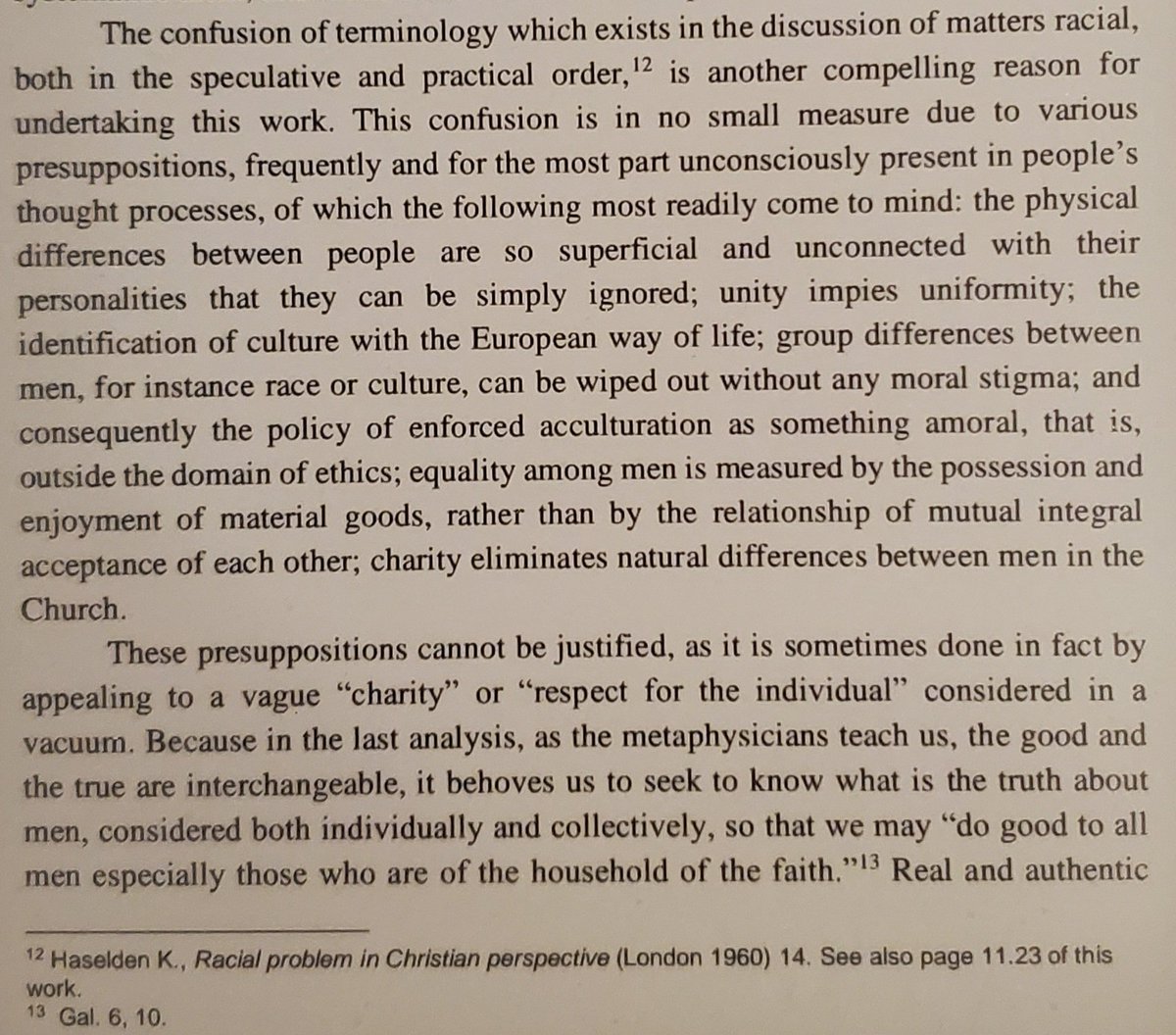

the difficulties in understanding heredity experimentally along with the interplay of environment, nevertheless "study of the differences between human groups constituted by heredity is of the greatest importance in the practical ordering of human life..." 



"it remains an open question whether such an hierarchy does or doesn't not in fact exist" and additional practical considerations of race mixing 

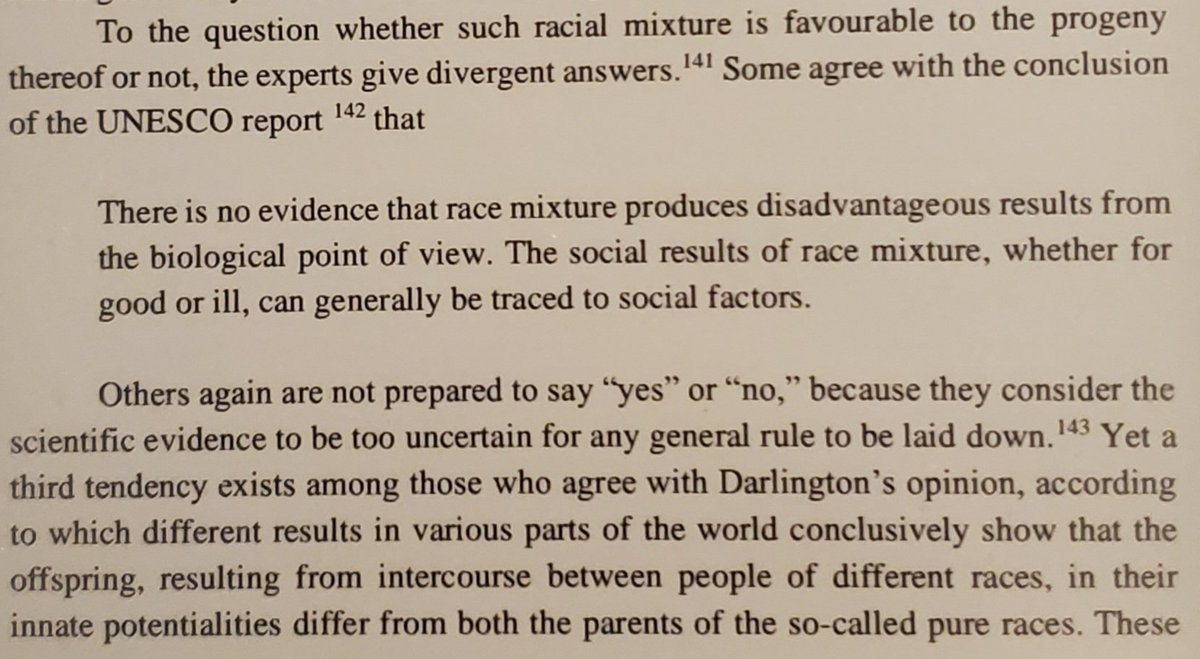
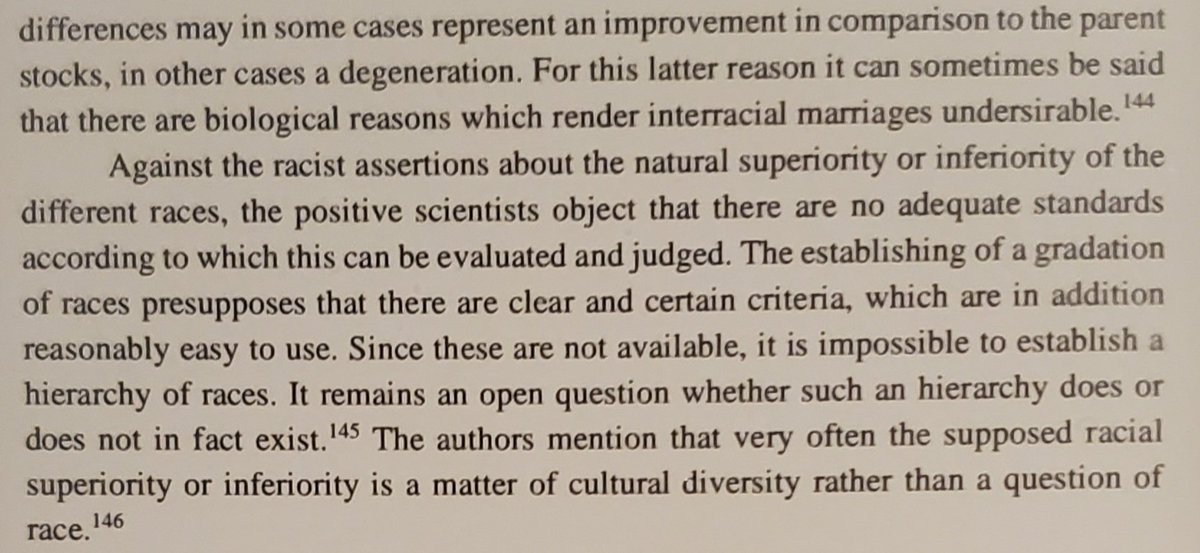
posting this entire section detailing the relationship between soul & body and the hereditary informing of the bodily disposition which constitutes man hylomorphically 



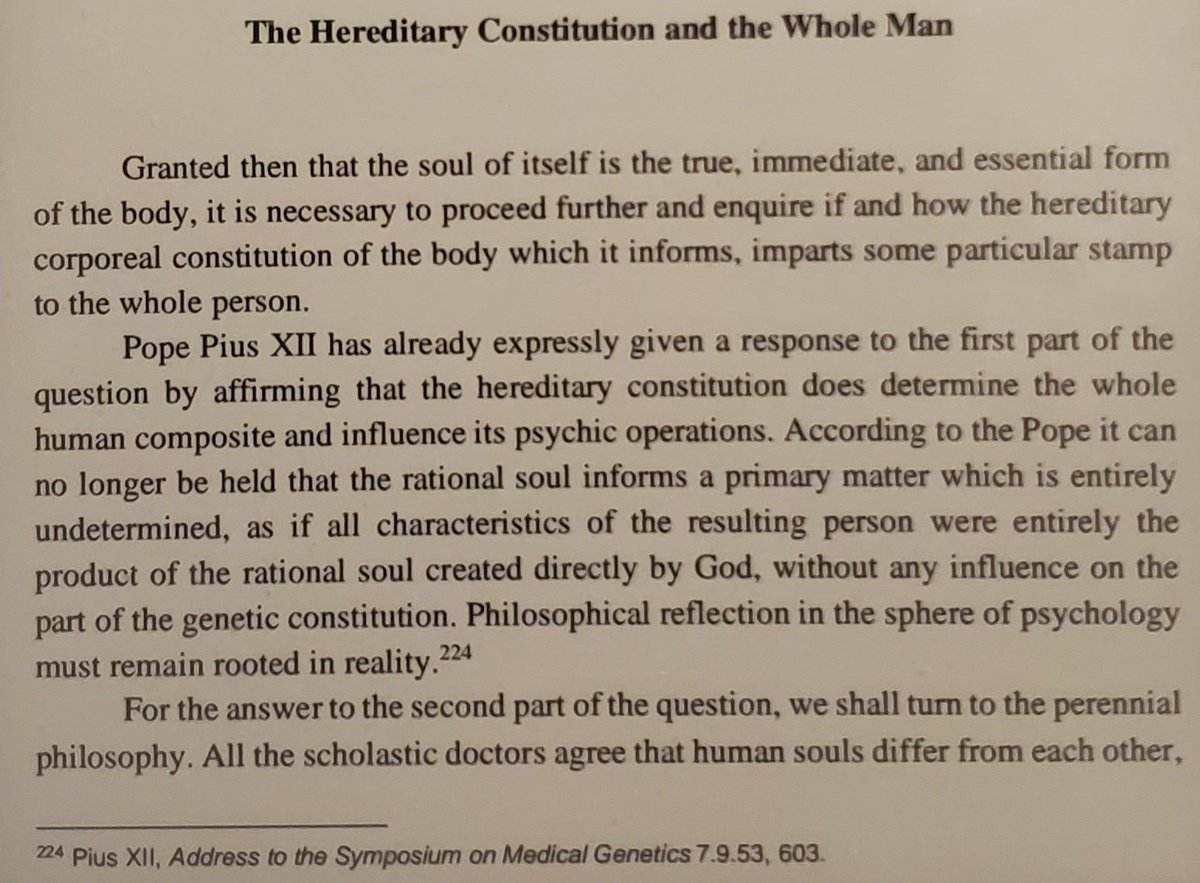



here are the actual propositions on the instruction on the errors of racism from 1938. you can immediately tell the context of these condemnations and in the last excerpt hinwood explains how the scope here is in fact quite limited. 




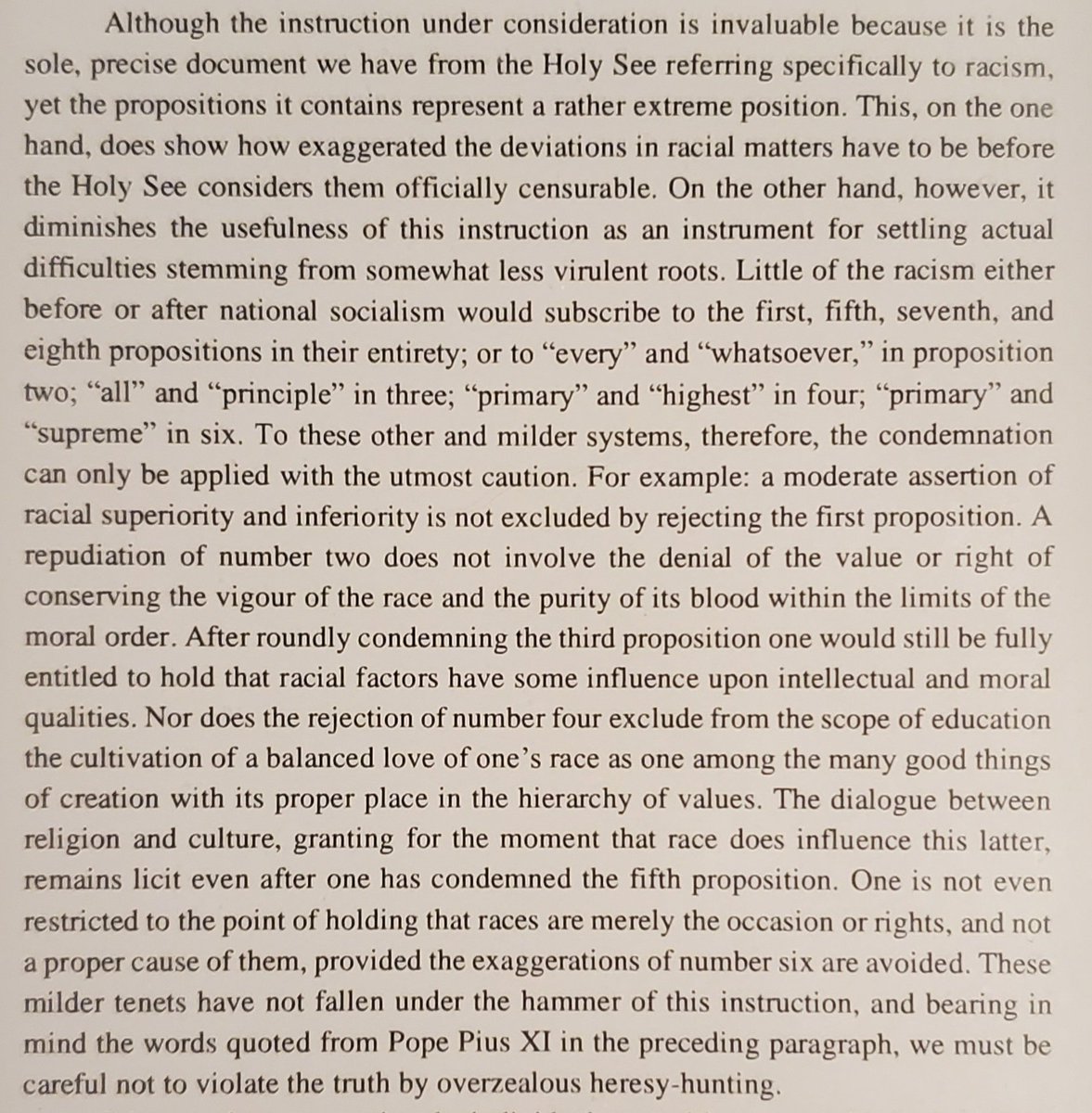
here is an example of how the condemnation does not entail a rejection of the idea that "intellectual & moral qualities are to some degree determined by hereditary factors, including racial" & that "this presents no difficulty in the general structure of christian truth." 

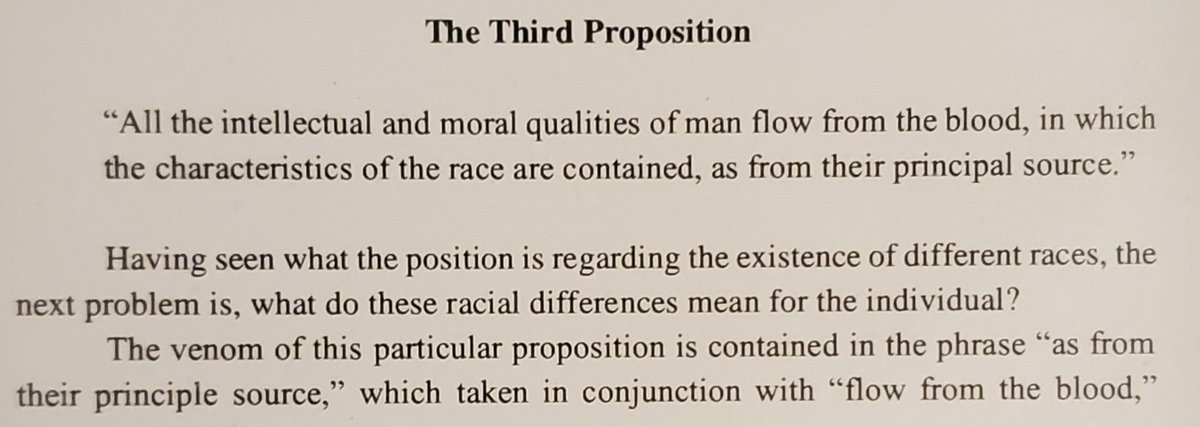

an excerpt from a discussion on whether laws regulating marriage can take race into account. "the defense & maintenance of the identity of a race is in itself quite legitimate, & consequently laws made to give concrete expression to this are valid." 



two excerpts, one a quotation from pope john xxiii, which judge race to be of genuine relative importance, the error of racism consisting in taking it as supreme principle. 



included here is a summary critique of "neopaganism," where religious truth becomes subject to the determinations of race. races do not have gods, yet, again, concern for one's own people is perfectly legitimate. 



the church accepts the actual facts of race in their concrete historical circumstances, and how citing galatians does absolutely nothing to alter this or any other acceptance of natural distinctions 


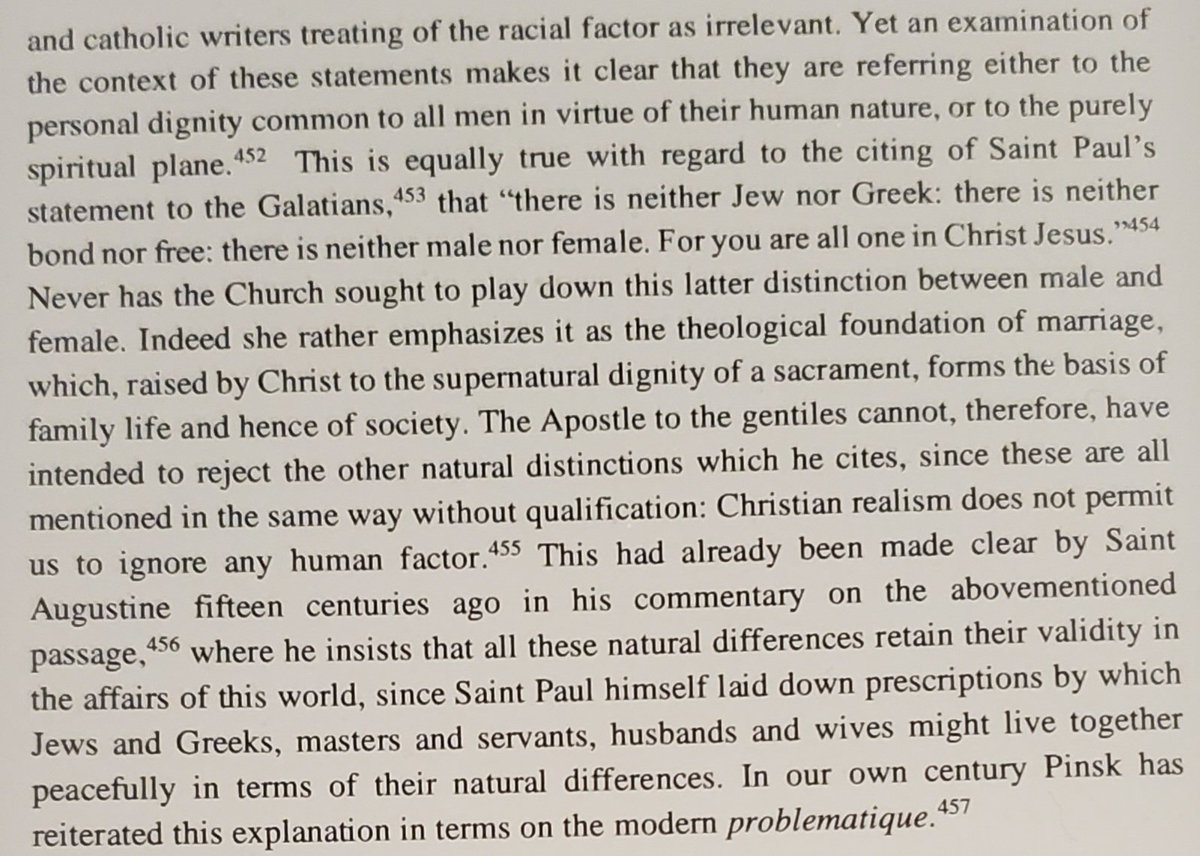
on racial differences having a psychic and spiritual significance, heredity having esteem from even the supernatural viewpoint, & the erroneous belief that race can be reduced to something insignificant like mere differences of color 



on how racial differences may even be understood as an accidental hierarchy of inferior & superior, which may not violate the unity of humanity but which can also be of great consequence 





posting this excerpt from the discussion of the rights of races so you can read the last line of this paragraph by itself... 

"furthermore, each one is entitled to his heritage of race & culture, as these are indispensable to his personality, not for himself only but also for his descendants, because man is of his very nature social." 

interesting aside in a discussion of race & culture, progress of culture cannot be equated with development in technology but in the spiritual perfection of man of which these other things must serve as instruments 



on the rights of cultures to self perpetuation, transmission to future generations even through organized education, & our responsibility to the cultural heritage of our nations 

the ultimate unity of mankind not as a mixture of identities of race and culture but as a joining together of the varied fulfillments of the racial potentialities inherent in man, race possesses supernatural significance 



last section of the book, the reality of race, its goodness, and its significance but only relative to the supernatural end of man (not as supreme principle) 







• • •
Missing some Tweet in this thread? You can try to
force a refresh










